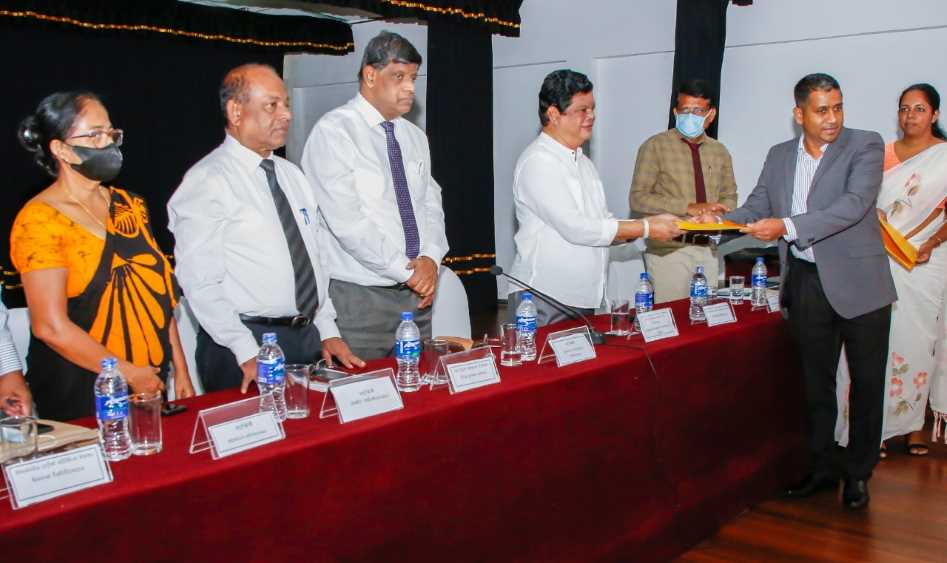The foreign exchange shortage in Sri Lanka currently faced with, has made the import of many essentials difficult. Fuel for transport at current prices costs more than all other consumer imports including food, milk, medicine, household goods, LP gas etc… The Government has not presented the country with a plan on how to deal with this crisis, where the reduction of fuel imports is necessary.
The Sri Lanka Society of Transport & Logistics (SLSTL) which represents specialist consultants in the transport & logistics sectors made a presentation to the Hon. Minister of Transport, Highways, and Media on the 4th June, at a workshop organised by the Ministry. The presentation was a 20-point professional plan, recommended by SLSTL to the Government for implementation in the short-term. The proposed plan would reduce oil imports for transport which cost us $4 billion a year or approximately two shiploads per week. The target is to reduce this figure by $ 500 million to 1 billion, which will depend solely on the government’s wiliness to implement the plan and the leadership they will provide in the implementation process.
While SLSTL appreciates the interest shown by the Minister of Transport, at the workshop, the fuel reduction plan is shared with the public, for awareness and support. If the government and the public are invested in coming out of the current crisis, together we can make a significant saving to the country which will benefit everyone.
GoSL leadership and National Program
- The immediate launch of a national program appealing to all citizens to consciously contribute towards reducing fuel consumption and declare a policy of accelerated public transport enhancement.
- For the Government to prioritize the import of diesel over petrol and improve the logistics of distribution. The use of smart technology will prevent queues and manage limited fuel issues.
- Embark on a national awareness program on the revised transport policy approach that prioritizes public transport, cycling, and walking and especially with the support of media campaigns.
Public Transport Enhancement to attract Private Vehicle Users
- The National Transport Commission (NTC) should immediately double the Sisu Saeriya school bus services including air-conditioned services.
- The NTC and SLTB should ensure that the first and last bus mandatorily operates on all routes under the Nisi Saeriya program.
- The Ministry to implement the Sahasara bus reform model connecting buses to a passenger app and bus management system already developed by the University of Moratuwa, providing the location of buses and trains to passengers through mobile phones, and integrating other services countrywide.
- The Ministry should re-implement the bus priority lane system adding low floor buses, card-based payments, and improved customer service.
- Train services including long-distance services should be increased and measures taken to improve train frequency.
- Encourage the private sector to develop digitally based micro-mobility, ridesharing, carpooling, park and ride at bus terminals and railway stations, including for bicycles, and other alternate transport solutions appraised for economic viability, that are procured through open bids
Reducing the use of Cars (including all four-wheeled passenger vehicles)
- Ministry of Public Administration to temporarily replace private vehicles assigned to government officers including the military with a transport allowance. All ministries to introduce measures to reduce overall fuel use by 50%. The example set by the government will naturally motivate the people.
- Encourage the private sector and public to target a 50% reduction in travel. Request experts to develop household trip planning software and promote good practices in fuel savings.
- To impose a three-month restriction on the use of private cars on specific days of the week by the last digit of the registration number of cars, SUVs, pickups, and vans which consume 51% of the fuel used for passenger transport
- Impose restrictions on cars, vans, and SUVs carrying less than three passengers entering areas that experience regular traffic congestion. Also, request all institutions to arrange for carpooling, office transport services, and other alternative fuel-efficient transport.
Encouraging Cycling and Walking
- Assign the 22nd of September as the International Car-Free day. Encourage pedestrians and cyclists by simultaneously improving sidewalks and providing cycle lanes on existing roads, promoting cycle rentals, docks, and parks.
Making Travel More Productive
- Ministry of Public Administration should implement compressed work weeks (3-4 days) to reduce physical travel to work and even to schools that attract heavy traffic.
Improving Logistics & Freight Movements
- In the face of forecasted food shortages, encourage digital technology in transforming the food supply chain to reduce waste.
Other
- The interim budget makes an allocation of Rs 30 billion to develop public and alternative transport and to stop spending on expressways, other than the ongoing Central Expressway up to Mirigama.
- Impose a 2% surcharge on petrol or a substantial increase in revenue licensing fees as a dedicated levy for developing the public transportation and above measures.
- Revise the transport sector pricing mechanism.
- All transport stakeholders to collaborate in data sharing, and service delivery to monitor the key performance indicators and to use them for future directions.




